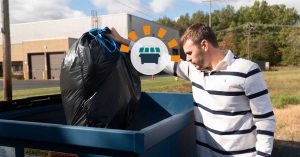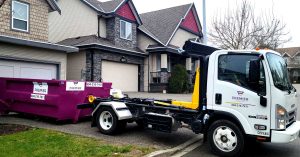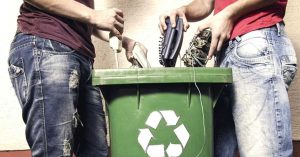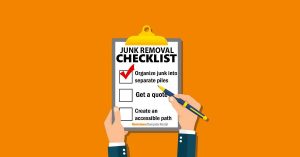Why is Recycling Important?
Recycling is an easy way to lower greenhouse gas emissions, lessen air and water pollution, and conserve energy and natural resources. You can contribute to a healthier, more sustainable environment by recycling your bottles and cans.
However, how can a few cans and bottles make a difference?
Recycling aluminum cans reduces energy usage by 95% when compared to making new ones. Recycled aluminum cans are melted down and reformed into new cans. Since petroleum, a non-renewable resource, is used to make plastic bottles, recycling them can save more than 3.8 barrels of oil for every ton of plastic recycled.
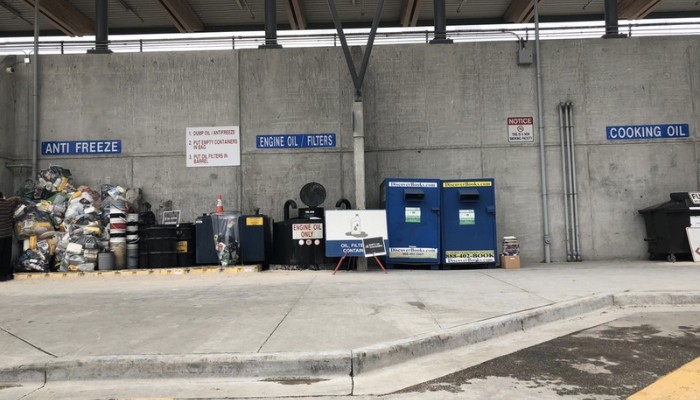
Recycling only one glass bottle can save energy equivalent to four hours of use from a 100-watt light bulb. Therefore, when people claim that discarding a single bottle has little impact, they couldn’t be more wrong.
About Recycling Centres in Vancouver
Recycling in Vancouver is sorted and disposed of depending on the waste you are looking to recycle.
Curb-Side Pick Up
The following can be recycled using your neighborhood curbside pick up:
- The majority of plastic containers, cartons, paper cups (including washed paper, to-go cups, and lids), aluminum, and steel containers are all examples of mixed containers. Remember that many glass bottles, Tetra Packs, and aluminum cans can be returned for a deposit.
- Paper, Packaging, and Cardboard. This refers to the majority of paper and cardboard products, such as cereal boxes, newspapers, and boxes. Composite packaging products, however, do not include things like plastic-lined paper, to-go cups, waxy cardboard, tissue paper, books, or soiled items like pizza boxes.
- Glass Bottles and Jars: While drinking glasses, shattered glass, ceramics, and light bulbs fall into this category, sauce and jam jars do not. Also keep in mind that any bottles that need a deposit can be returned to a depot or merchant for a refund.
Green Bins
Organics and Garbage are managed by the City and these items can be placed in your green bin or garbage for curbside pick-up:
- Unprocessed food scraps like egg shells and fruit peels are included in the category of “food scraps,” along with small portions of cooked and processed goods like bones, noodles, bread, cooking oil, and tea bags.
- You can also dispose of soiled paper items here, including tissues, pizza boxes, parchment paper, and paper compost liners. Please take note that bags that decompose or biodegrade CANNOT be used in the green bins operated by the City of Vancouver.
- Yard trimmings. Grass, leaves, branches, and other plant debris are all considered yard trimmings, along with clean, unfinished wood, but not sod, soil, or manufactured wood products.
- Garbage – Some goods still can’t be recycled or used for something else. These include plastic squeeze tubes, paper with a plastic coating, plastic strapping, 6-pack rings (don’t forget to tear them up), biodegradable or oxo plastics, PVC/vinyl, and squishy foam and plastic squeeze tubes.
Recycling Facilities
Items not included in the curbside program can be dropped off at recycling
depots, transfer stations, and Recycle BC partner London Drugs. These include:
- Soft plastics, such as those used for vegetables, bread, and grocery bags.
- Other Flexible Plastic Packaging, or OFPPs, includes packaging like bubble wrap, plastic shipping envelopes, shrink wrap, and plastic with resin codes 2, 3, or 4. It also includes crinkly wrappers and bags like those found on chip and cookie packages, seals similar to those found on meat, cheese, and yogurt containers, woven and net plastic bags, and packaging like rinsed zipper pouches for rice, oats, or frozen fruit packages.
- Test the plastic by sticking your finger through it to see if it is flexible or soft. The plastic is soft if it stretches; if not, it is flexible.
- Common household goods, like electronics, light bulbs, batteries, small appliances, and Brita filters, can also be recycled at London Drugs and other drop-off locations. Old gadgets can also be recycled or restored by a number of regional organizations.
- Fabrics – Clean fabric can be recycled at a number of Vancouver drop-off locations.
- You can do drywall disposal, Mattresses, Residential Asbestos, and Extra Yard/Wood Waste at the Vancouver Landfill and Recycling Depot in Delta, as well as the Vancouver South and North Transfer Stations.
Choosing the Right Recycling Centre in Vancouver
Waste and recycling facilities in Metro Vancouver provide a variety of free or paid recycling services. You can estimate the price of accepting materials for recycling using their online cost estimator. Actual prices are based on the weight of the materials, which is calculated by weighing your car both when it enters and exits the center. However, to segregate the waste you can make use of bin rental services in Vancouver.
What More Can You Do?
Don’t forget to reuse and, perhaps more importantly, reduce your consumption! You can also make more significant adjustments, like deciding not to drive or fly. Reduce your consumption of meat. Buy locally.
Don’t promote businesses you don’t support, and encourage neighbourhood groups to do the same. Start a reading group, join an interest group, and engage in community activism to get involved. Take part in social media. Vote. Think of and take measures to prevent climate change. Attend and organize protests.
These are only a few methods to participate and bring about long-lasting change.

